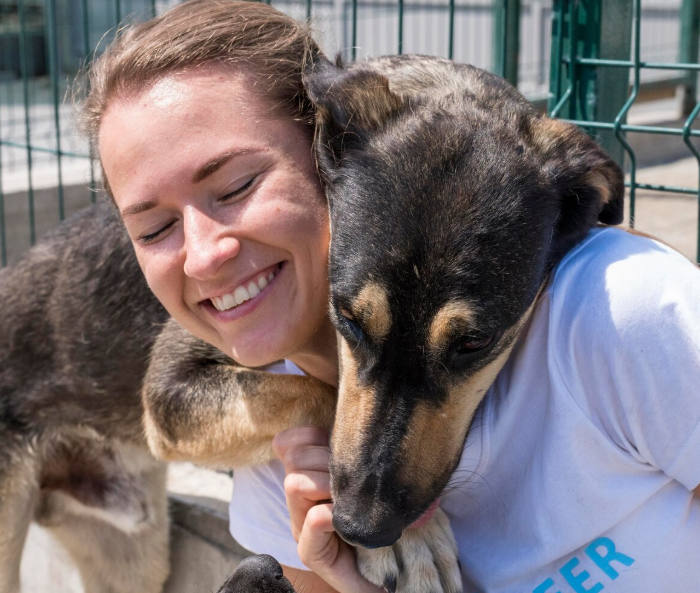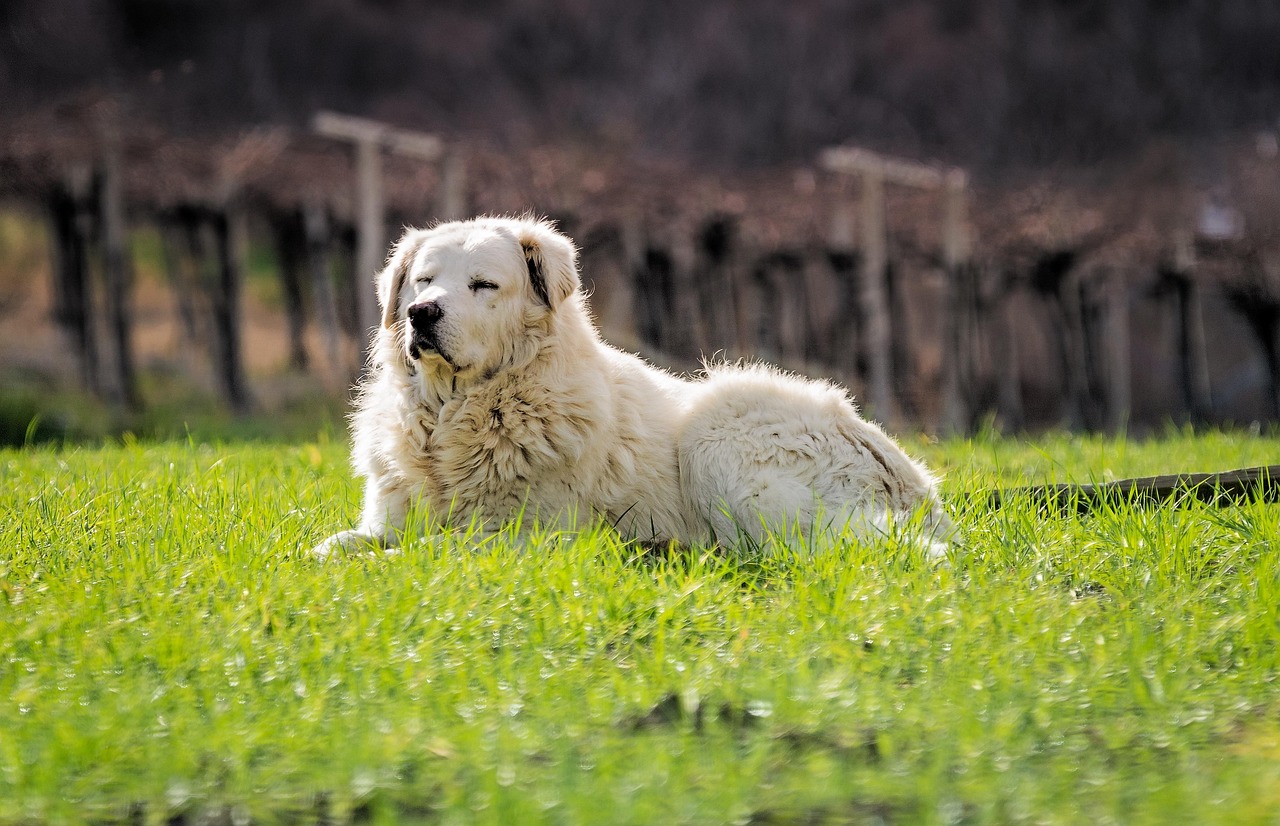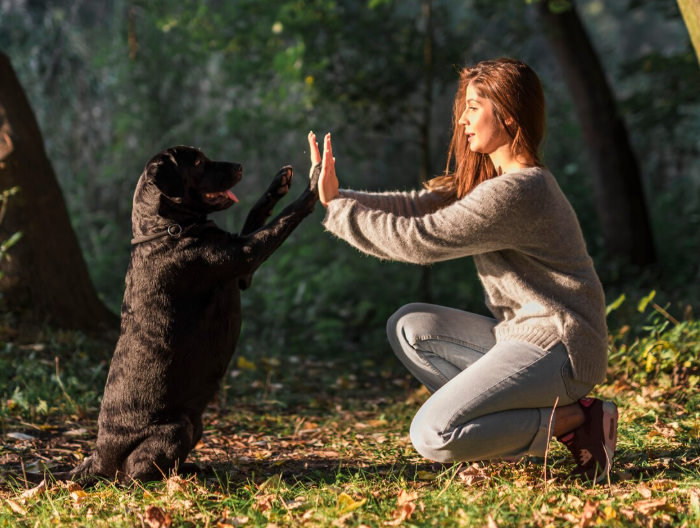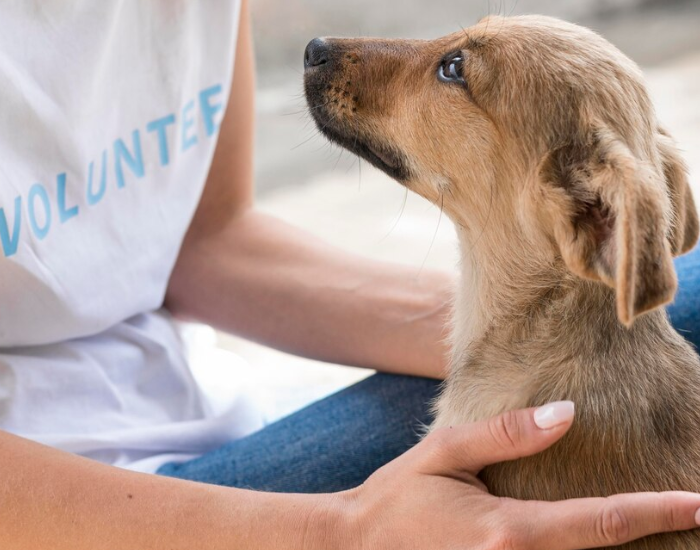For many individuals with disabilities, a service/assistance dog can be life-changing! These dogs don’t just provide comfort and companionship, but undergo specialized training to perform specific tasks directly related to a person’s disability. Needless to say, they greatly contribute to improving their handler’s life by boosting confidence and bringing a sense of independence and accomplishment.
Yet, the training and placement of a service/assistance dog is a complex and costly process due to the long time organizations need to properly raise and train a dog, as well as match them with an eligible individual. Obtaining a fully trained service dog can be prohibitively expensive, with costs reaching up to £20,000–£30,000 / €24.000- €35.000 per dog.
That’s where non-profit organizations come in! There are charities, non-profit organizations, and community groups that step in to provide service dogs, often for an application fee only.
Today’s article is dedicated to exploring non-profit service dog organizations. We will delve into how these charities operate, the standards they follow, and the crucial role they play in supporting individuals with disabilities. While we focus primarily on the UK and Europe, we’ll also highlight several international bodies that help ensure quality and consistency in assistance dog work.
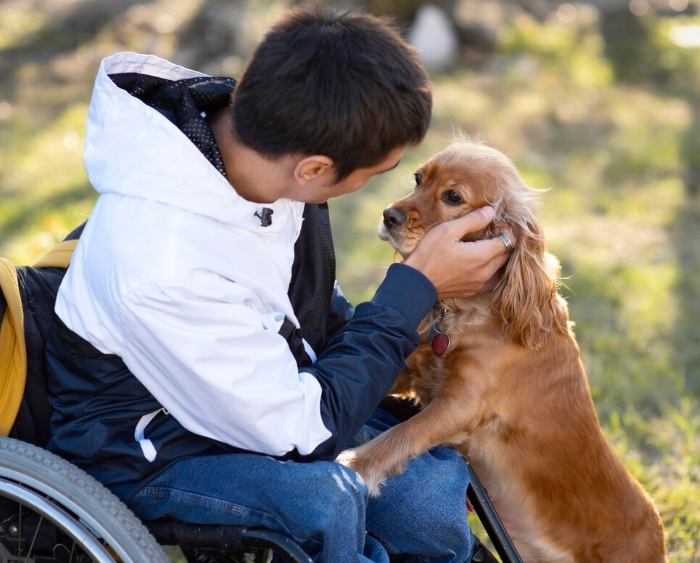
What Do Non-Profit Assistance Dog Organizations Do?
These organizations specialize in training dogs to assist people with a wide range of disabilities, including:
- Visual or hearing impairments;
- Mobility limitations and physical disabilities;
- Autism spectrum disorders;
- Medical conditions like epilepsy, seizures and diabetes;
- Mental health issues, such as PTSD, anxiety, depression, bipolar disorder, panic attacks, etc.
In contrast to private providers, non-profits operate on a donation-based model, and are typically supported by volunteers, fundraisers, and grants. Many also adhere to internationally recognized standards to ensure high levels of raising, training, and disability support.
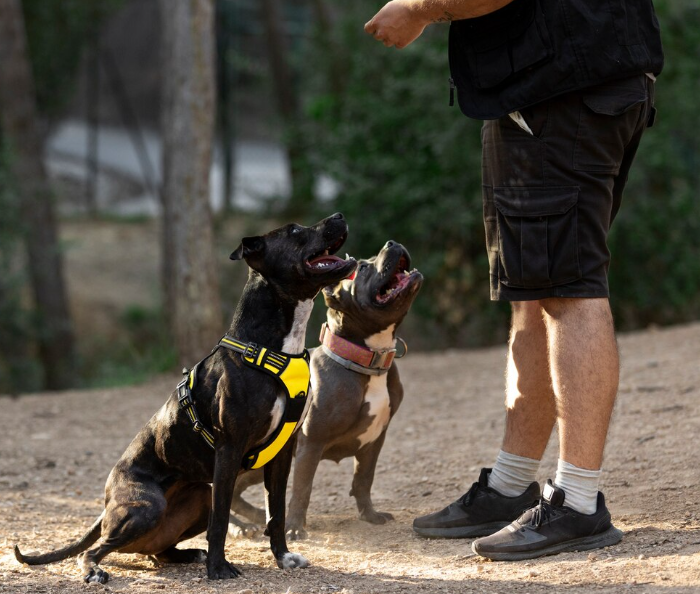
The Role of Oversight Bodies: ADUK, ADI & IGDF
Assistance Dogs UK (ADUK)
ADUK is a coalition of UK-based charities that provide assistance dogs. Their members are accredited by Assistance Dogs International (ADI), and the International Guide Dog Federation (IGDF) and meet rigorous standards in training, welfare, and client support. Their dogs are widely recognized in public spaces, including shops and public transport. ADUK ensures accountability and quality, helping the public distinguish legitimate assistance dogs from unregulated or fraudulent claims.
From guide dogs to medical alert dogs, from autism dogs to hearing dogs, their members train assistance dogs to support individuals with a wide range of disabilities.
It’s important to note, though, that ADUK specifically states that assistance dogs in the UK may be owner/self-trained and such dogs enjoy the same rights as long as they have been properly trained.
Assistance Dogs International (ADI)
ADI is a major global authority on assistance dog training and certification. It accredits programs worldwide, including many in the UK and Europe, and promotes best practices in dog training, disability rights, and public access.
Most ADI members provide their own trained service dogs and don’t work with clients’ personal dogs. However, ADI member organizations that may offer such services can be found on their website. To locate them, click “Advanced filtering options,” then scroll down until you see the checkbox labeled “Will consider working with an owner and their personal dog.” Select your country from the drop-down menu and check the box to filter the results.
International Guide Dog Federation (IGDF)
IGDF is an umbrella organization that accredits guide dog schools and organizations dedicated to training guide dogs for people who are visually impaired or blind. The IGDF sets and enforces international standards that cover every aspect of guide dog work, including the selection and breeding of suitable dogs, training methods, animal welfare, and client support services.
Member organizations of the IGDF must undergo thorough and regular assessments to ensure they consistently meet these high standards. This process includes evaluations of training protocols, the health and well-being of the dogs, and the effectiveness of the partnerships formed between guide dogs and their handlers.
By maintaining such strict certification requirements, the IGDF helps ensure that individuals relying on guide dogs receive reliable, safe, and well-matched canine partners who can provide essential mobility and independence. Additionally, the federation fosters collaboration and knowledge-sharing among member schools worldwide to continually advance guide dog training and welfare practices.
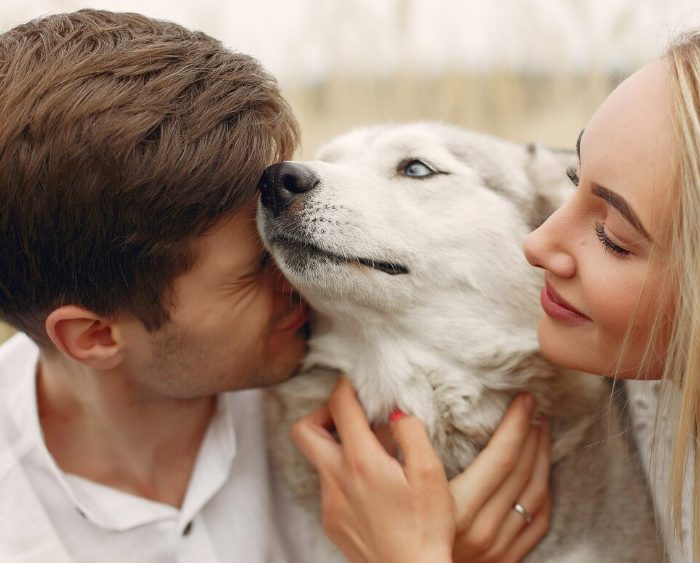
Leading Non-Profit Assistance Dog Charities in the UK
Guide Dogs | The Guide Dogs for the Blind Association
Guide Dogs UK has been helping people with vision loss for many years, providing trained dogs that help with everyday tasks and mobility. They also offer support and advice to help people feel more confident getting around on their own.
Hearing Dogs for Deaf People
This charity trains dogs to alert deaf people to important sounds like doorbells, alarms, or a baby crying. These dogs make a real difference by helping their owners stay connected and safe in everyday life.
Support Dogs
Support Dogs works with people who have autism, epilepsy, or physical disabilities, and is engaged in training dogs to meet their unique needs. They focus on making life safer and more manageable, especially for families with children who need extra support.
Canine Partners
Canine Partners trains dogs to assist people with physical disabilities by helping with tasks like picking up things, operating switches, or helping with dressing. Their dogs help give people more independence around the house and in their local community.
Dogs for Good
Dogs for Good provides assistance dogs to adults and children with different needs, including learning disabilities and autism. They tailor the training to each person, aiming to boost confidence and help with daily challenges. They also offer support to families and carers.
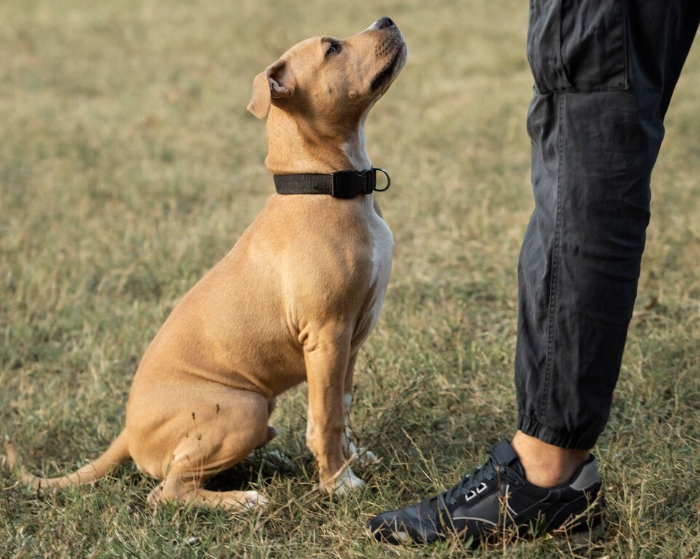
Standout Organizations Across Europe
VITA
Assistenzhunde (Germany)
VITA provides assistance dogs for individuals with a wide range of physical disabilities, with a special focus on children and young adults. The organization emphasizes long-term support, matching each dog carefully to their handler and offering extensive follow-up after placement.
VITA is also active in promoting disability inclusion and awareness throughout Germany.
Handi’Chiens (France)
Handi’Chiens trains dogs to support children with autism, individuals who use wheelchairs, and residents of care homes. Their program goes beyond task training and aims to enhance emotional well-being and social connection. With a strong focus on community outreach, they often involve local volunteers and foster families in the training process.
Stichting Hulphond
Nederland (Netherlands):
This Dutch organization provides assistance dogs for people with physical disabilities as well as psychiatric service dogs for those dealing with PTSD, trauma, or other mental health conditions. They also run therapy dog programs in healthcare settings.
Hulphond Nederland combines traditional training methods with innovative, evidence-based practices.
Fundación ONCE del
Perro Guía (Spain):
As Spain’s primary guide dog organization, Fundación ONCE del Perro Guía is IGDF-accredited and works closely with people who are blind or visually impaired. In addition to training dogs, the foundation advocates for better accessibility and runs education campaigns to raise awareness about guide dog rights across Spain. Their breeding and training center is among the most advanced in southern Europe.
Österreichisches
Assistenzhunde-Zentrum (Austria)
This organization provides guide dogs, mobility assistance dogs, and psychiatric service dogs across Austria. They emphasize individualized matching and long-term partnerships between handlers and dogs. Their work also includes advocacy and efforts to improve public acceptance and legal recognition of service dogs in Austria.
Fondazione Progetto
Itaca (Italy)
Primarily focused on mental health support, this foundation runs service dog programs that assist individuals with psychiatric disabilities. Their dogs are trained to interrupt anxiety attacks, provide grounding during episodes of dissociation, and offer emotional regulation support. The foundation works in close cooperation with healthcare professionals to tailor placements to each person’s needs.
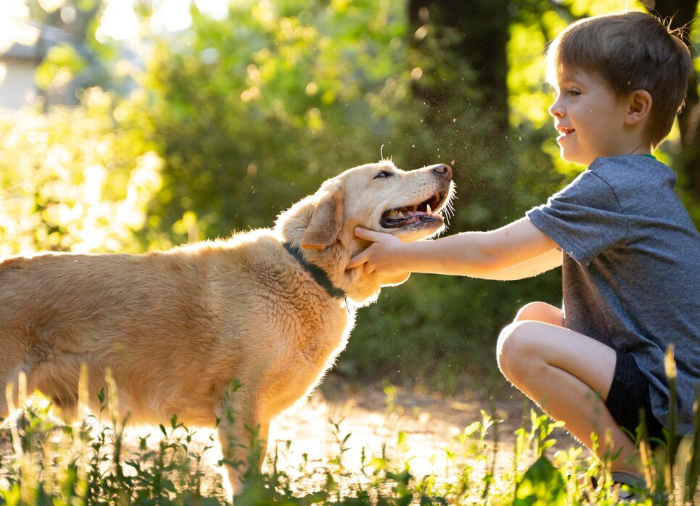
Challenges and Opportunities
The demand for assistance dogs continues to grow, especially in areas where conventional support systems may be limited, such as for individuals with psychiatric disabilities, PTSD, and autism spectrum conditions.
As awareness of the benefits of assistance dogs increases, so does the pressure on non-profit organizations to meet this need. However, they face several ongoing challenges:
- Long waiting lists, which can exceed two years due to limited resources and the intensive nature of the training and matching process;
- High costs associated with breeding, raising, and training dogs, even when much of the work is supported by volunteers or charitable donations;
- Limited public understanding, leading to confusion between legitimate assistance dogs and pets falsely presented as such, which can result in stigma or access issues for genuine teams.
The lack of a unified legal framework across European countries, makes it difficult to ensure consistent public access rights for assistance dog users when traveling or relocating.
Despite these challenges, there are promising developments. Many non-profits are exploring innovative training models, such as:
- Owner-trained dog support programs, where individuals train their own dogs with the help of certified professionals;
- Hybrid schemes, that combine professional training with owner involvement, which can make support more accessible and tailored to specific needs;
- Ongoing aftercare and refresher training, to ensure that both the dog and the handler continue to develop as a team.
These approaches broaden access to assistance dogs and also help bridge the gap between demand and availability, especially in areas, where assistance dog programs are limited or not available at all.
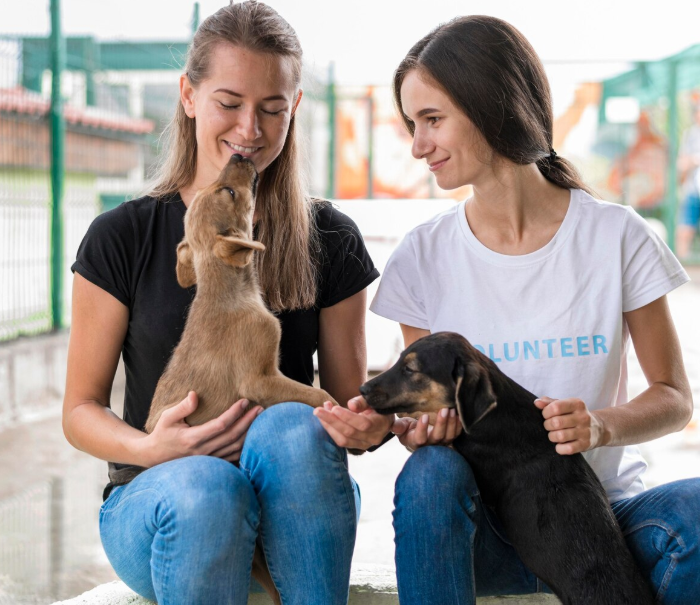
How Can You Help?
There are many ways to support the work of non-profit assistance dog organizations, whether you have time, resources, or simply want to help spread the word about their mission.
Donate
Donations help cover the costs of breeding, raising, training, veterinary care, equipment, and client support. Many programs rely entirely on donations to keep their services free or low-cost for those who need them.
Volunteer
Volunteers play an essential role in raising dogs, helping with transport, organizing fundraising events, or offering admin support. Some organizations also seek temporary foster homes or weekend socializers for young dogs in training.
Advocate
Public understanding of assistance dogs is still limited in many places. You can help by sharing accurate information about access rights, the differences between assistance dogs and pets, and how to recognize appropriately trained teams.
Educating others can reduce stigma, debunk myths, and improve everyday experiences for assistance dog teams.
Partner
Businesses, schools, employers, and local authorities can all help build more inclusive communities. Partnering with assistance dog organizations, whether by hosting awareness sessions, offering dog-friendly policies, or making adjustments for accessibility, makes a big difference in creating a welcoming environment for assistance dog teams.
Assistance dogs truly change lives, but raising, training, and matching them with the right person takes time, care, and dedication. Across the UK and Europe, non-profit organizations work hard behind the scenes to make these life-changing partnerships possible, and help people live with more confidence and independence.
By supporting their efforts we can help ensure that both the dogs and the people who rely on them continue to receive the quality, support, and respect they deserve.





